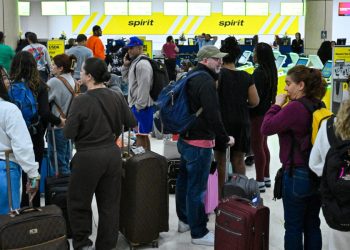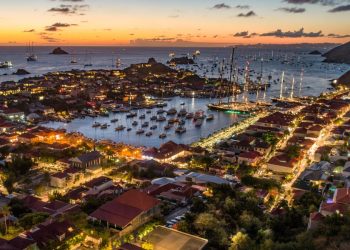- Vacationing on a superyacht may sound like it’s all Champagne and sunbathing.
- But before boarding a luxury vessel, superyacht captain Kelly Gordon advises keeping certain things in mind.
- Yachting is a summer pastime with risks and nuances for clients and crew.
Jeff Bezos and Lauren Sánchez soaking up the sun. Travis Barker and Kourtney Kardashian’s wedding. Beyoncé’s carefree jump into the ocean.
One of these images is likely what comes to mind when you hear the word “superyacht,” a phrase generally used to describe a yacht over 80 feet in length.
While ultra-luxurious vessels are associated with all things carefree, tragic events such as the sinking of the Bayesian superyacht off the coast of Sicily on Monday is a reminder that yachting is a pastime with unique risks and nuances. It’s unclear what the protocols were on the Bayesian.
For those keen on the idea of chartering a superyacht, captain Kelly Gordon, 42, told Business Insider there are a number of important factors to consider before hopping on board.
Gordon fell in love with yachting after she stepped aboard a yacht for the first time in her mid-20s.
Hellbent on reaching captain level, Gordon quickly worked her way up the chain of command. She’s spent most of her time sailing the Bahamas and the Caribbean and is now based in Florida, where she works as a captain on a 108-foot-long privately owned vessel.
Gordon, who has over 12,600 followers on Instagram, shares three factors to keep in mind before boarding a chartered superyacht.
Think of the process of chartering a superyacht as buying a house
One of the most important things to do when chartering a superyacht is to work with a charter broker, Gordon says.
“The charter manager’s job is to No. 1: find you a safe boat,” Gordon said, adding that in her experience, “Not all programs put safety as high up on the list as it should be.”
She also likes to equate charter brokers to Realtors in that they take on the role of finding you the best option for your taste.
“You find one that you gel with really well and has a good reputation, and then you discuss with them what your budget is, where you want to go, what your activity levels are, what your personalities are like,” Gordon said.
Pairing clients with a crew that aligns with their characteristics is a huge part of a charter broker’s job, Gordon said.
“If you think about it, you’re living with that crew for 24/7, around the clock,” she said. “You’re not going put someone that just wants to sit and read books all day with a crew that’s extremely active.”
Find a crew that is competent and prioritizes safety
Charter brokers also help match clients with a competent crew that prioritizes safety.
“I don’t know that many people realize just how much their life is in our hands when we cast those lines and we go to sea,” Gordon said.
Part of that is having a safety briefing, which Gordon carries out every time she welcomes clients onto a chartered vessel before leaving a dock.
A thorough safety briefing includes informing clients about the location of safety equipment and lifejackets and the procedures for events such as a fire, a person falling overboard, or the boat sinking.
“You should have a safety briefing, and if you don’t get one, you should ask for one,” Gordon said.
The process, she added, can be different on privately owned yachts, where passengers may be familiar with the vessel.
The Bayesian is a private yacht owned by tech tycoon Mike Lynch; it’s not yet known what kind of safety protocols staff and guests were trained on.
Make sure there’s a member of the crew on watch 24/7
“A lot of charter guests think when they go to sleep, the crew goes to sleep,” Gordon said.
But that shouldn’t be the case, she added. “You want to be on a boat knowing that someone’s up, because if the weather changes or the anchor starts to drag, you need somebody that’s up and ready to go and get everybody else to handle it.”
Among the biggest weather risks are tornados, which can be extremely difficult to predict and prepare for whether you’re on land or at sea.
“I’m from the Midwest, where tornados pop up,” Gordon said. “It’s hard to see a tornado coming, and if you do see it coming, the tornado goes where it wants to go.”
Most often, that leaves people near the weather event with just minutes to ready themselves, which is even trickier “in the middle of the night.”
While rapid changes in weather are tough to contend with, Gordon recommends researching the areas you are sailing in beforehand, like you would when visiting a new country.
“It’s no different than if you’re going on vacation on land,” she said. “You want to know where you’re going. Don’t put that just all on the crew.”
While the research doesn’t have to be as extensive as the crew should be doing, it’s important to still be “responsible for your own self as well as your family and your guests.”











 American Dollar Exchange Rate
American Dollar Exchange Rate